by Aisha Yesufu | Jul 7, 2016 | 2016, Africa, Africa and Middle East, Communication, Education, Family, Motherhood, Nigeria, Priorities, School, Study Abroad, Travel, World Motherhood
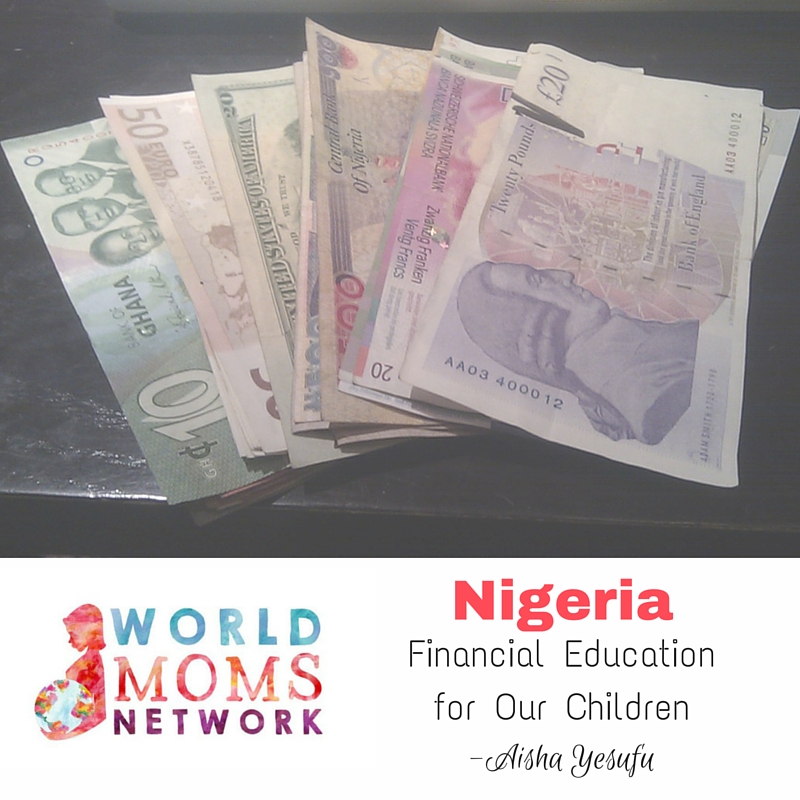
“Mummy, is it Buhari’s fault that the economy is bad?” My daughter asked me this when she returned from school one day. She’s referring to Muhammadu Buhari, the president of Nigeria. “You must always call him President Buhari,” I corrected my daughter. Then I realised this was another opportunity to educate my daughter about economy and finances.
I told her it’s not President Buhari’s fault that the economy is bad, rather it is the choices we made as a country. I told her Nigeria is like a big family. Imagine that the father had a big job and they paid him a very good salary. In this family, perhaps the mother chose not to work because the father’s salary was so good. The family lived well, and often traveled abroad for holidays, wearing designer clothes. Everything they did was expensive. They had huge parties all the time. Their children went to expensive schools and they go abroad for treatment even for a simple headache.
The father earned well, but did not save anything and sometimes borrowed even more money to maintain their extravagant lifestyle. At one time some family members started stealing the money for their own personal enjoyment. They stole this money right out of the family account.
One day the company the father worked for was no longer able pay the father his big salary, so they gave him a pay cut. Remember, the father did not save when he was earning a high income. Remember, the family led a very expensive lifestyle. Remember, the mother had no job, so she couldn’t support the family. So, there was problem.
Eventually, a new father was brought in and the salary was reduced further and further. The family still had no savings and money was still being stolen from the family account. The new father found it difficult to support that expensive lifestyle the family was accustomed to. In this case, there would be economic problems and it wouldn’t necessarily be the father’s fault. In the meantime, the father must still deal with the people who stole from the family account, and try to recover the money.
“Do you understand now?” I asked. “Yes, I do,” said my daughter, and she went away, satisfied.
Our children know something is wrong and we need to explain to them what is going on. At a school meeting recently, I overheard a parent wondering how can she tell her child they can’t afford to pay school fees? I told them as parents you need to financially educate your children. This is not done in school, so it’s the parent’s duty to ensure that children are aware of economy and finances.
My children are part of our family’s economic life. They know what’s going on in our businesses and their father’s job. They know when things are good that we are investing, and they know why we invest. They know where the money for their school fees is coming from and what sacrifices were made to make ends meet. When business is bad, they know. At one time I thought we couldn’t pay my daughter’s school fees and I told her she had to delay a week or more before starting school (we always pay school fees before resumption date. It’s my personal stand). Luckily we managed to pay on time, but she learned that it’s a possibility and understands life sometimes throws a spanner into the works.
When we joined my husband in Abuja in 2011, my children’s school fees were fifty times higher than what we were used to paying. I had to sit my children down to explain that we needed to make sacrifices for their education. One of the decisions we made as a family was to reduce travelling abroad for holidays. So we did, and my children understood why.
In December, my daughter went to Europe for her school’s annual ski trip. She noted that there were a lot fewer students on the trip than previous years. My daughter also went to Wales this month for the Duke of Edinburgh expedition. Similarly, not all the students participating in the Duke of Edinburgh programme went for the expedition. I had to explain to her there was economic downturn and it was not easy for all families to afford such trips. At the moment, we are seriously worried about paying for education because our currency was losing value. She gave me a worried look and said, “God willing, everything will be okay.” “Amen,” I replied.
My daughter left the house a better-informed child. I hope that when she becomes an adult, she will be better prepared for economic and financial challenges because she learned about it as a child. As parents, we cannot shield our children from the reality of life. Let them learn from us and be more financially savvy.
How do you ensure that your children get a good understanding of your family finances?
This is an original post written for World Moms Blog by Aisha Yesufu in Nigeria.
Photo credit: Bob Ryskamp / Flickr
by Mannahattamamma (UAE) | Jun 30, 2016 | Africa and Middle East, Brothers, Competition, Cultural Differences, Expat Life, Global Citizenship, Living Abroad, Middle East, Older Children, School, Travel, UAE, World Motherhood
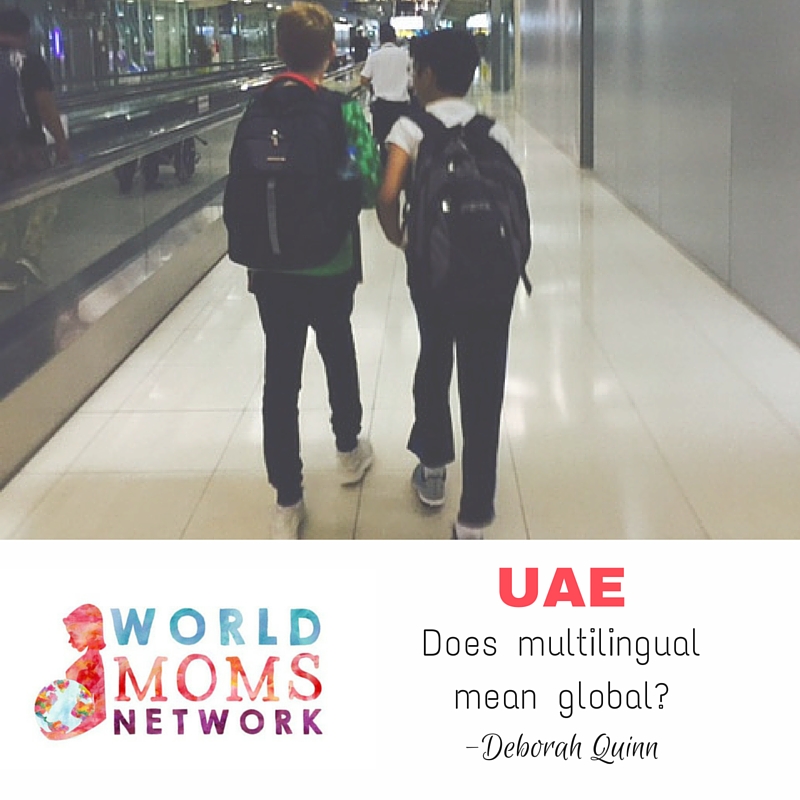
When we moved to Abu Dhabi from Manhattan five years ago, we intended to stay in “the Dhabs” for a year. Our kids had scored the Manhattan Grail: spots in a “gifted and talented” public school, which meant we wouldn’t have to sell everything we owned to pay for private school, and if we stayed away from the city for more than a year, we would lose the seats.
“But you have two spots at the school,” people said to me when I told them we were leaving. To ease their doubts, I kept talking about the benefits of an international education and experiencing different cultures–but to tell the truth, I think I was trying to convince myself. After all, if you’re a student in a Manhattan public school, you’re going to be connect with kids from around the world; it’s unavoidable. Did we really need to move halfway around the world to get a “global experience?” I wondered.
Three-quarters through our first year, we decided to take the leap and sign on for another year (or four) of expat life. A year just didn’t feel like enough time: we would have been packing up to move back just as we were starting to settle in. I felt as if all the energy (and exhaustion and not a few tears) that went into adjusting would have been wasted if we returned to New York after just a year.
The boys are studying Arabic in school, and in our travels through the region, they’ve picked a few phrases here and there — mostly “hello” and “thank you” and “chocolate” — in Sinhalese, Punjabi, Italian, Swahili, Korean. The trips we’ve been able to take from Abu Dhabi would have been impossible from Manhattan, especially on the salaries of two literature professors, and so in that regard, our expat life has delivered the sort of global awareness we were hoping for.
Or at least that’s what I think on my optimistic days. On other days, I wonder: does the simple fact of being able to say “hello” in eight different languages really make you globally aware? I suppose my wavering back and forth is just the expat version of questions most parents ask themselves–“is this school the right school,” “are we doing the best we can for our kids”–and we all have good days and bad days in terms of those answers. How do we raise global citizens? That question, in the light of “Brexit” and the demagoguery of Trump, seems increasingly important, even as the answers get more complicated.
I had to confront those questions just the other day in an emotional conversation with my younger son (now almost twelve). We were sitting on his bed in a hotel room in Bangkok, where we’d come for the Global Round of the World Scholar’s Cup, an academic competition that draws kids from, yes, around the world (but mostly Asia). I’d asked C. if he were nervous about the upcoming three days of competition in writing, debate, and current events quizzing, and his eyes welled up. He admitted that he wanted to do as well as his brother had, two years ago, in the same competition, but also, he said, “I don’t want you to feel like it was a waste for you to bring me here.”
Argh! A blow straight to the heart! How had he gotten the idea that my husband and I would resent the money we spent on airline tickets if he didn’t do well? Suddenly I was the one almost in tears.
I assured him that we didn’t think it was a waste at all and that we were ridiculously proud of him already, just for doing the work to get this far. “Being able to do things like this are why we moved to Abu Dhabi,” I said. “We couldn’t afford flying to Bangkok if we still lived in New York.” My son nodded, vaguely reassured (although still nervous and still in the grips of sibling rivalry).
Truth be told, he probably doesn’t believe me when I say that we’re proud of him already. In the mind of an almost twelve-year old boy, “winning” is pretty much the only thing that matters. Given that there are about 2,000 kids competing in his division, I’d say winning anything is a long shot. (Though if there were a category called “Minecraft knowledge,” he’d probably outscore the entire world.)
What I realized after our conversation, is that yes, this experience is part of why we moved to Abu Dhabi, even though at the time we’d never heard of the World Scholar’s Cup. Even with the international flavor of New York, this sort of intense week-long bonding experience with kids from around the world would not have been possible. This experience, of negotiating differences and finding connections across cultures, will go a long way (I hope) in establishing the foundations of a global citizenry.
C. will remember this week in Bangkok long after he’s forgotten how to say “hello” in Sinhalese. For this week, at least, I’m pretty sure that becoming an expat family was the right thing for us to do.
What about you? How do you raise your global citizens?
This is an original post to World Moms Blog by Deborah Quinn, Mannahattamamma of the UAE. Photo credit to the author.
After twenty-plus years in Manhattan, Deborah Quinn and her family moved to Abu Dhabi (in the United Arab Emirates), where she spends a great deal of time driving her sons back and forth to soccer practice. She writes about travel, politics, feminism, education, and the absurdities of living in a place where temperatures regularly go above 110F.
Deborah can also be found on her blog, Mannahattamamma.
More Posts
Follow Me:


by Adwoa Gyimah | Jun 23, 2016 | 2016, Africa, Africa and Middle East, Education, Ghana, Special Needs, World Motherhood
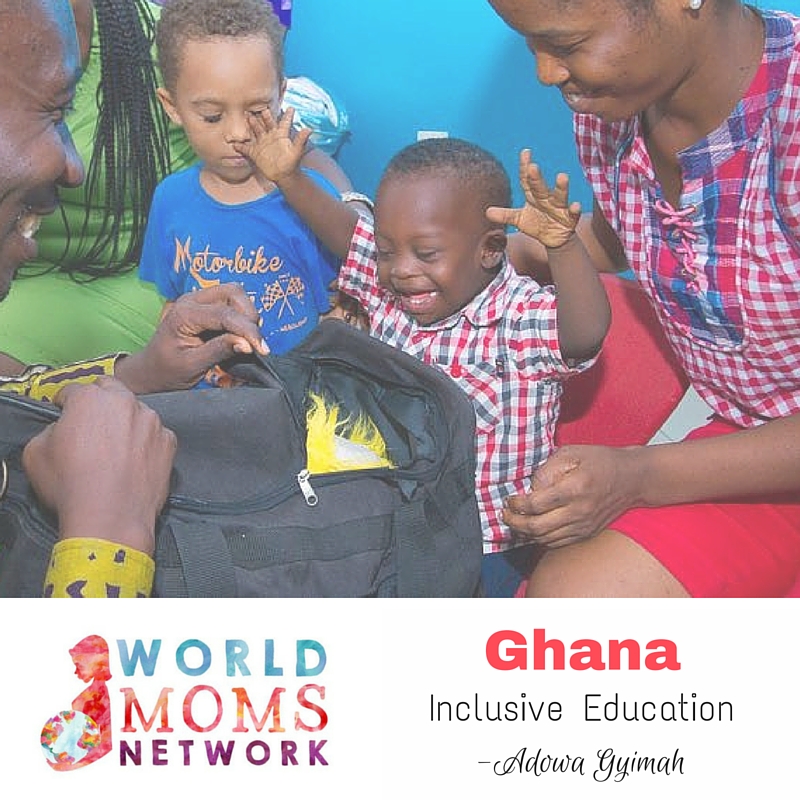
I am often asked why I decided to enrol my mainstream children in an inclusive school. I did a great deal of research when looking for the best school for my family, and I was encouraged by the testimonials of parents who had chosen this path for their mainstream children. I decided that an inclusive education was the best choice for my children.
Inclusion in education is an approach that seeks to embrace students of all abilities, including those with special educational needs. In inclusive schools, students with special needs learn side-by-side with their non-disabled peers. This educational approach avoids the use of separate schools or classrooms to separate students with disabilities from those without.
The inclusive school I chose for my children is the first of its kind in Ghana. Multikids Inclusive Academy is an inclusive international school educating children of all educational needs and abilities in a co-existing learning environment. In this school, children with special needs are not separated from the children without – they are integrated in the same class.
The school provides the best of both worlds to children with special of all abilities. They maintain small class sizes, making it possible for every child to get the assistance and attention they need. The school envisions a society where all people can live side by side respectfully and appreciate that we each have a unique contribution to make to the world. The academy seeks to build confidence and competency in all learners, and to promote excellence through an enabling environment. In this school, every child truly matters.
I am so happy that a school like this one exists in Accra, Ghana. My children will benefit from learning side-by-side with students of all abilities, and will learn that all children can reach their potential with the right support and encouragement.
Do you have inclusive schools where you live? Would you consider an inclusive education for your child?
This is an original post written by Adowa Gyimah of Ghana for World Moms Blog.
Photo courtesy of Multikids Inclusive Academy, Ghana.

by Kyla P'an (Portugal) | Jun 1, 2016 | 2016, Advice, Awareness, Being Thankful, Communication, Education, Gratefulness, Happiness, Health, Heartfulness, Identity, Independence, Inspirational, International, Life Balance, Me-Time, Meditation, Motherhood, Priorities, Responsibility, Time, World Moms Blog, World Motherhood
World Moms Network has teamed up with the Heartfulness Institute as a media partner for their upcoming meditation conferences in the United States. As part of this partnership, World Moms Blog will feature a meditation related post each week through the end of June. This week, World Moms Senior Editor, Kyla P’an, sat down (virtually) with Heartfulness trainer, Tonia Anne, to have a deeper conversation about meditation. Here’s what Tonia had to say about her journey:
Tonia is a terrific example of a World Mom: she is half-Irish, half-French, her husband is Indian and they live across the river from the Melting Pot of America, New York City. She is raising two children, ages seven and four, and has been practicing meditation for more than twenty years. Talking with Tonia is a little like listening to classical music, it’s melodic and soothing. She’s delightfully at peace and put together but she says her life hasn’t always been so.
“In my early-twenties, life seemed quite confusing. I was a sensitive young adult quite lacking in self-assurance. I was studying and working in the professional theatre and life felt complicated. In this context, my mom, who had started practicing meditation a few years earlier, encouraged me also to try meditation.”
When Tonia’s mom put her in touch with a Heartfulness trainer, Tonia was surprised to discover how easy it was to get started; all she had to do was meet with a trainer for 30-minutes each day for three consecutive days to learn how to do this heart-centered meditation. After the three sessions, Tonia knew how to meditate on her own. The trainer encouraged her to join weekly group meditation sessions, which she did. There was a lot of support.
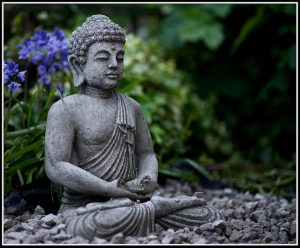
But Tonia didn’t become a regular meditator overnight. Just as acquiring any new skill, it took practice. “I didn’t do it every day at first but I did find myself looking forward to the good feeling I got from meditating, so I found ways to fit it in,” she reflects.
“Heartfulness meditation is so utterly simple. There is nothing complicated about it. You connect with your heart, rest your awareness there, the ongoing thoughts recede into the background. You are still; and at the same time you are receptive to your heart, which enables you to capture its guidance. Progressively there’s a growing sense of clarity and peacefulness,” says Tonia.
“It feels like the most natural thing to do, like following an inner compass. Like bringing yourself back to yourself.”
To hear Tonia describe meditation makes you realize, perhaps anyone can do this successfully. She’s convinced they can. Meditation, after all, is tuning into a quality of being rather than making something happen.
To help non-practitioners better understand what happens with thoughts, Tonia provides a simple, visual image:
“Picture a river with a bridge over it. Crossing the bridge are lots of little cars. These cars are your thoughts and rather than focusing your attention on any one of the cars (thoughts), you can step back and notice that the river flows nonetheless. At any given moment you can choose where to direct your attention, here we rest our attention on a single point in the heart.”
“We work well with patterns and routines,” she adds. “If you create a place for your meditation (a comfortable chair, a room, a specific spot on the floor), and set a regular time each day to practice, be it 10, 20 or 30 minutes, then soon enough, it becomes a routine.”
Twenty years in, Tonia now meditates every day. Her practice starts when she naturally wakes up before 6 a.m., “before everyone else in my house gets up; before the hustle and bustle of the day; before the e-mails and schedules, when the mind is calmer.” This is the time she takes for herself and she does it by settling into a designated chair in her family room for a thirty to sixty-minute session. She says it makes her feel centered and gives her poise. It sets the tone for her day, and the whole family seems to benefit.
“We are constantly being solicited, especially as moms. We are constantly nurturing and attending to others’ needs. Meditation is my time to be nurtured. Setting aside time for myself in a deep way, where I am connecting with my deepest longing, helps me find balance and deal better,” says Tonia.
When asked how she decided to make meditation such an integral part of her life, Tonia’s answer was simple and beautiful:
“As a child I would wonder in awe at life, at this life that had been given and that I was in, and have a sense that there must be something to make of it…a sense of a diffuse dream. Meditation is like remembering the dream and living more on purpose.”
To learn more about the Heartfulness Institute and their upcoming US conferences, please visit their website: www.heartfulness.org
Kyla was born in suburban Philadelphia but spent most of her time growing up in New England. She took her first big, solo-trip at age 14, when she traveled to visit a friend on a small Greek island. Since then, travels have included: three months on the European rails, three years studying and working in Japan, and nine months taking the slow route back from Japan to the US when she was done. In addition to her work as Managing Editor of World Moms Network, Kyla is a freelance writer, copy editor, recovering triathlete and occasional blogger. Until recently, she and her husband resided outside of Boston, Massachusetts, where they were raising two spunky kids, two frisky cats, a snail, a fish and a snake. They now live outside of Lisbon, Portugal with two spunky teens and three frisky cats. You can read more about Kyla’s outlook on the world and parenting on her personal blogs, Growing Muses And Muses Where We Go
More Posts - Website
Follow Me:

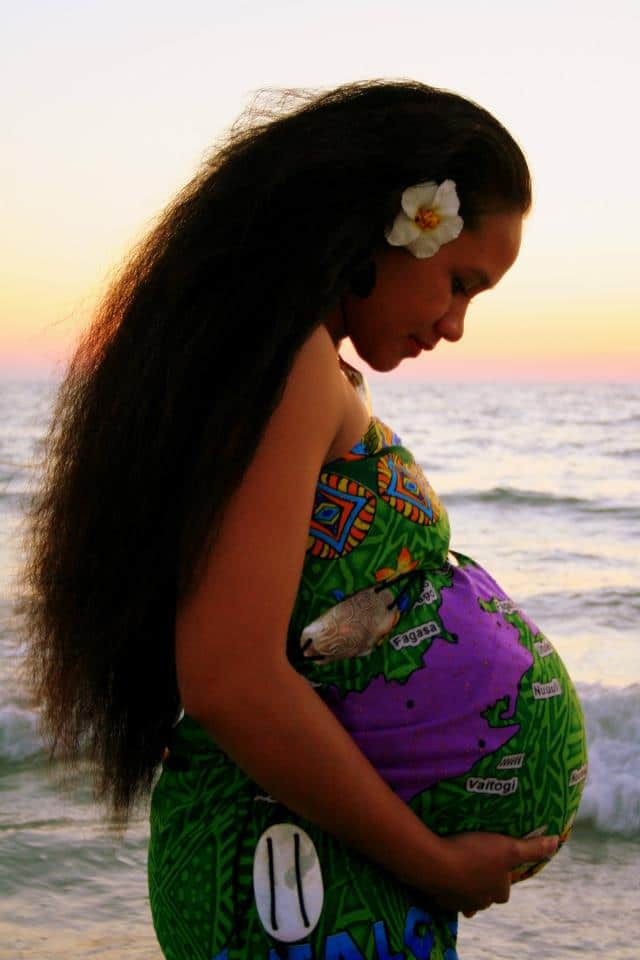
by ThinkSayBe | May 27, 2016 | 2016, Adolescence, Advice, Awareness, Being Considerate, Being Thankful, Blogging, Caring, Child Care, Childhood, Communication, Culture, Education, Expat Life, Eye on Culture, Family, Global Citizenship, Gratefulness, Happiness, Health, Helping, Humanity, Humor, Inspirational, International, Kids, Life, Life Balance, Life Lesson, Living Abroad, Motherhood, Moving, Multicultural, North America, Parenting, Partnerships, Relationships, Respect, Responsibility, Responsibility, The Americas, ThinkSayBe, Travel, USA, Womanhood, World Motherhood, Younger Children, Youth

If you’re a parent, or a child, or anyone, you may have heard the phrase. “It takes a village” (to raise a child). After reading a post written by a fellow contributor, KC, I remained in thought about this village that’s needed to raise our children.
KC is currently a stay-home-mum to a precious toddler, so you know she has one of the most rewarding and challenging positions in the universe; one weighted with a lot of responsibility, as well. Thankfully she takes the time to write about some of what’s going on in her world as a mum, a woman, and as a person, because out of her writing I found something I want to discuss, too. Check her out at http://www.mummyintransit.com. She is a really good writer, and she’s funny too.
In reading KC’s post I thought about my own experience as a child in Italy, a teenager in Tanzania, and an adult and parent in the United States. What was my village like? Who did my mum include in forming my personality and my worldview?
(more…)
I am a mom amongst some other titles life has fortunately given me. I love photography & the reward of someone being really happy about a photo I took of her/him. I work, I study, I try to pay attention to life. I like writing. I don't understand many things...especially why humans treat each other & other living & inanimate things so vilely sometimes. I like to be an idealist, but when most fails, I do my best to not be a pessimist: Life itself is entirely too beautiful, amazing & inspiring to forget that it is!
More Posts
Follow Me:

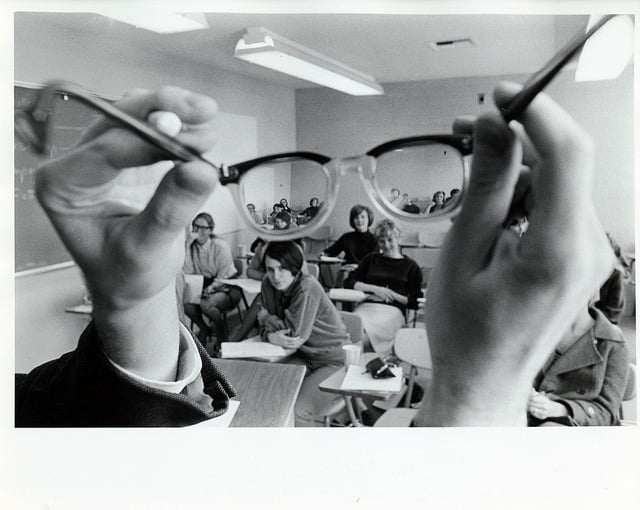
by Ecoziva (Brazil) | May 20, 2016 | 2016, Brazil, Domesticity, Education, Environment, Identity, Life, Life Balance, Life Lesson, Motherhood, Work, Working Mother, World Motherhood

When I was a teenager/young adult I wanted to change the world (as it happens with so many youngsters). And changing the world usually meant Doing Big Things.
Now, three kids and more than twenty years later, my saving the world efforts seem so distant. I grapple with alternating days when I stay home with the kids, sorting socks and washing dishes, and days teaching classes at the university, advising students’ research, and trying to do some research of my own.
At one point of my life I thought my career would be in the non-profit sector; i.e., I would be a professional environmentalist, forever. By then my volunteering efforts had evolved into parallel paying jobs related to social-environmental issues, and this kind of lifestyle went on for 12+ years.
I continued on to graduate school not because I wanted to become an academic, but because I thought it would be a great addition to what I already did. I found it exciting to go from project to project, often working on more than one at once. I felt almost repulsed by the thought of staying in the same job for the rest of my life, always doing the same thing. I even got a certain thrill from not knowing where my salary would come from after the current project ended.
My husband (who worked for the same NGO) was not as thrilled and dreamed of the day at least one of us would have a more stable job. Since I was already on the academic path in one way or the other, that person became me.
When I first became a professor I wasn’t overjoyed. Although I love to do research, teaching is a different story and it was very hard in the beginning. At this point I already had three children and the “saving the world” type of projects were in the past. Another dream that I tried to pursue (to become a professional writer) had also been buried. I sadly realized I wasn’t really passionate about anything anymore – except, of course, my kids.
By this time my husband had gotten a relatively stable government job, although he didn’t really love it. We were finally okay financially and we were living a comfortable life. Nevertheless, we began to question ourselves about our choices.
Were we still living according to the same principles we followed when we first met (especially in relation to the environment)? Were we fleeing our responsibility of making a difference in the world? Had we left our ideals aside for modern, middle class comforts? Were we still being true to our dreams?
At first I had a good excuse to avoid these issues because two of our kids were very small and I had to deal with all of the related motherhood issues. In parallel, I tried to make the most of my job focusing on the good things: stability, flexible hours, and the possibility of quantity time with my children even if that meant doing a lot of work at night and during the weekend. I told myself (and I still do), that there are many means to make a difference, even if in “small” ways.
After all, in practice, there are no real big things. Big things take place in small steps and often need more than one person involved. Also, what seems like small, local things, often involve a lot of work and may have a greater impact on the world than expected. No wonder one of the most popular environmentalist mottos is, “Think global, act local”.
Today, in my attempts to continue to be of service to the world, I try (for example) to be a good listener to my students because sometimes I sense they are more in need of a friendly ear than anything else. A great number of students suffer from depression and other related disorders, for instance. And it’s not that I serve as a psychologist or anything, but I frequently feel that just treating them kindly and making an effort to advise them extra well regarding academic issues makes a significant difference.
Yet the fact is, regardless of how we do in our present jobs, the sort of questions I listed before has been haunting us for the past few years. Now that our youngest is past three, these questions have resurfaced. The biggest issue that remains is how to be true to our dreams and ideals while at the same time guaranteeing enough food on the table (and healthcare, and a good education etc., etc.)?
This post will be continued in Part 2.
Please share your story below on how you have managed (or not) to follow your dreams, personally and professionally.
This post was inspired by two other posts: “Surviving the turmoil” and “My frame world”.
This is an original post to World Moms Blog by Ecoziva in Brazil.
Photo credit to Claremont Colleges Digital Library. This photo has a creative commons attribute license.
Eco, from the greek oikos means home; Ziva has many meanings and roots, including Hebrew (brilliance, light), Slovenian (goddess of life) and Sanskrit (blessing). In Brazil, where EcoZiva has lived for most of her life, giving birth is often termed “giving the light”; thus, she thought, a mother is “home to light” during the nine months of pregnancy, and so the penname EcoZiva came to be for World Moms Blog.
Born in the USA in a multi-ethnic extended family, EcoZiva is married and the mother of two boys (aged 12 and three) and a five-year-old girl and a three yearboy. She is trained as a biologist and presently an university researcher/professor, but also a volunteer at the local environmental movement.
More Posts















